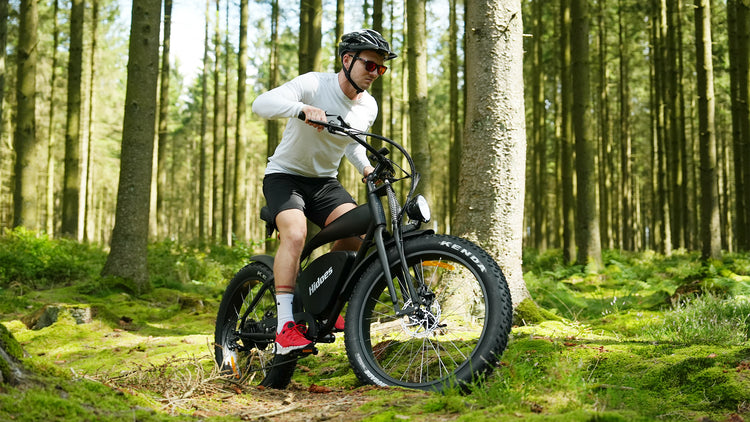
In recent years, electric bikes (e-bikes) have gained immense popularity as an eco-friendly and convenient mode of transportation. While they come with a multitude of benefits, it's essential to take a closer look at the other side of the coin. In this article, we'll delve into the disadvantages of e-bikes, exploring aspects that riders should consider before hopping on the electric bandwagon.
1. Initial Cost
One of the primary drawbacks of e-bikes is their upfront cost. Compared to traditional bicycles, e-bikes often come with a higher price tag due to the inclusion of advanced technology, batteries, and electric motors. This initial investment can be a significant barrier for some potential riders, despite the long-term savings on fuel and maintenance.
2. Limited Range
While advancements in battery technology have improved the range of e-bikes, they still face limitations. Riders may find themselves running out of battery power during longer journeys, which could leave them stranded or in need of alternative transportation. This limitation is a crucial consideration for those planning extensive commutes or bike tours.
3. Weight
E-bikes are generally heavier than their non-electric counterparts. The additional weight comes from the battery and motor components, making e-bikes bulkier and potentially more challenging to handle. Maneuvering a heavy e-bike can be cumbersome, especially when navigating through tight spaces or carrying the bike up stairs.
4. Maintenance Costs
While e-bikes have fewer moving parts than traditional motorcycles, they still require maintenance. The electric components, such as the motor and battery, may incur repair or replacement costs over time. Additionally, finding qualified technicians for e-bike repairs can be challenging in some areas, potentially leading to extended downtimes.
5. Charging Infrastructure
Unlike traditional bicycles that only need pedal power, e-bikes rely on electric charging. Access to charging infrastructure can be a challenge, especially in rural or less developed areas. Riders may need to plan their routes carefully to ensure access to charging stations, limiting the spontaneity of their journeys.
6. Theft Concerns
E-bikes, with their advanced features and higher resale value, are attractive targets for thieves. The risk of theft is higher compared to regular bicycles, and riders may need to invest in additional security measures such as robust locks or GPS tracking systems to protect their investment.
7. Environmental Impact
While e-bikes are considered environmentally friendly compared to gas-powered vehicles, the manufacturing and disposal of batteries raise environmental concerns. The production of lithium-ion batteries, commonly used in e-bikes, involves the extraction of finite resources and poses challenges for responsible disposal.
8. Regulatory Ambiguity
The regulatory landscape for e-bikes is still evolving, leading to ambiguity in some areas. Different regions may have varying rules regarding the classification, speed limits, and road access for e-bikes. This lack of uniformity can create confusion for riders, potentially resulting in legal issues.
Conclusion
While e-bikes offer a range of benefits, it's crucial for potential riders to consider the drawbacks before making a purchase. From the initial cost to maintenance and environmental concerns, weighing the pros and cons ensures that individuals make informed decisions based on their specific needs and circumstances.
Considering the various factors discussed, the Hidoes B6 presents a balanced option for riders seeking a reliable and versatile e-bike. With its 20"x4" fat tires, the B6 offers a comfortable ride suitable for commuting and light off-road adventures. The 1200W motor provides ample power without compromising on efficiency, making it an excellent choice for both urban and recreational use.








